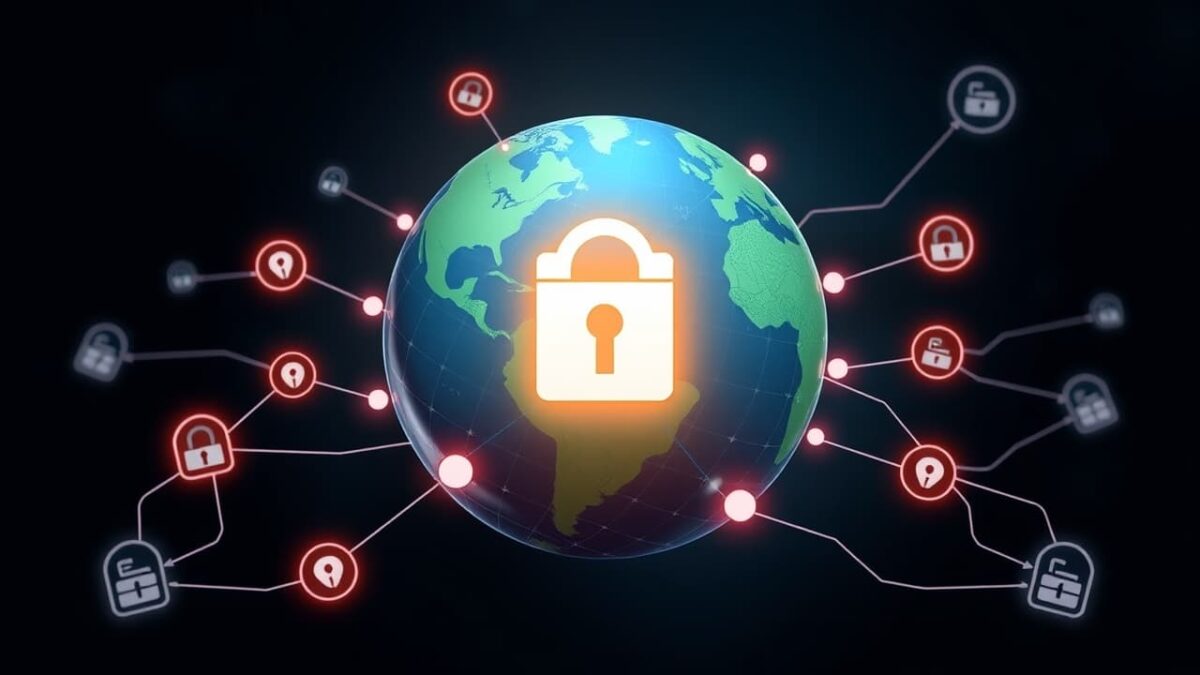Virtual Private Networks (VPNs) are essential for maintaining privacy and security in our digital lives. By creating a secure, encrypted connection between your device and the internet, VPNs act like private tunnels for data transmission. This encryption safeguards sensitive information, such as passwords and personal data, from potential cyber threats. VPNs also play a significant role in shielding your IP address, making it harder for third parties to track your online activities. This is crucial in an age where data breaches and identity theft are common. By rerouting your internet traffic through remote servers, VPNs provide an extra layer of anonymity, enabling you to browse the web without leaving a digital trace. Furthermore, VPNs help you bypass geo-restrictions, letting you access content that might be blocked or censored in some regions. This is invaluable for individuals seeking unrestricted global access to information and services. Understanding the basics of VPN technology is vital for anyone looking to safeguard their online presence and maintain control over their digital footprint.
Anonymous Browsing Techniques
Keeping your online presence private is a growing concern, and VPNs are a powerful ally in this endeavor. By concealing your IP address, they make it challenging for websites to track your browsing habits and gather personal data. This is particularly beneficial for those who wish to keep their online activities private. Besides using VPNs, other techniques can enhance anonymity, such as secure browsers like Tor, which routes your internet traffic through multiple servers to hide your location. Pairing VPNs with privacy-focused search engines, such as DuckDuckGo, reduces the risk of data collection and tracking. Regularly clearing cookies and browsing history can help minimize the digital footprint left behind. For added security, using encrypted messaging apps and enabling two-factor authentication on your accounts can provide extra protection against unauthorized access. Employing these techniques significantly boosts your online privacy in a world that’s becoming more interconnected.
Enhancing IT Skills for Gaming
For gamers, mastering VPN technology can greatly improve the gaming experience by tackling common challenges like latency, geo-restrictions, and DDoS attacks. VPNs can reduce latency by connecting you to servers closer to the game’s host server, resulting in smoother gameplay and reduced lag. This is particularly beneficial for competitive gamers seeking optimal performance. Additionally, VPNs allow you to bypass geo-restrictions, granting access to games and content unavailable in your region. This opens up a world of possibilities, letting you explore new titles and join global gaming communities. VPNs also offer a layer of protection against DDoS attacks, which can disrupt gameplay and compromise personal information. By concealing your IP address, VPNs make it difficult for malicious actors to target you. If you’re a gamer looking to boost your IT skills, understanding how to configure and optimize VPN settings can lead to a more secure and enjoyable gaming experience. Leverage a VPN for Windows to overcome common obstacles and fully immerse yourself in the digital gaming landscape.
Selecting the Right VPN Service
Choosing the right VPN provider is key to ensuring a secure and efficient online experience. Start by evaluating the security features offered. A reliable VPN should include robust encryption protocols, like OpenVPN or WireGuard, to protect data. A strict no-logs policy is also essential to ensure that your activities aren’t recorded or shared with third parties. Speed is critical; a slow VPN can hinder browsing and streaming. Look for a provider with a wide range of server locations, so you can connect to servers in different regions for optimal performance. User-friendliness is equally important, as a simple interface and easy setup make a big difference for VPN newcomers. Customer support matters, too, as quick assistance is invaluable for troubleshooting. By assessing these factors, you can choose a VPN service that meets your unique needs and offers a secure, smooth online experience.
Practical Application and Troubleshooting

Setting up and configuring a VPN might seem intimidating, but with the right guidance, it’s manageable. First, choose a reputable VPN provider and download their app on your device. Once installed, pick a server location and connect to the VPN with a click. Verify the VPN’s functionality by checking if the IP address matches the selected server location. Troubleshooting common issues, like connection drops or slow speeds, often involve switching to a different server or adjusting protocol settings. Ensure your internet connection is stable and that no firewall or antivirus software is blocking the VPN. For more advanced troubleshooting, consult your VPN provider’s support resources or contact their customer service for help. By gaining hands-on experience with VPN setup and troubleshooting, you can confidently tackle potential challenges and maintain a secure online presence. This practical knowledge is crucial for anyone looking to maximize the benefits of VPN technology in their everyday digital activities.